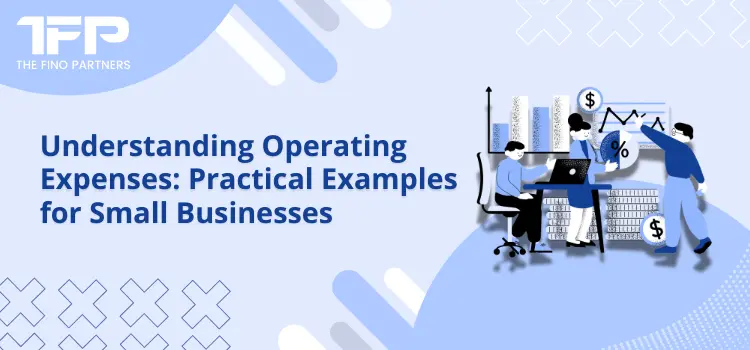For most small business owners, managing the operating expenses is a critical requirement to ensure long-term viability. Technically, operating costs are the costs charged against everyday business activities—from utilities and rental charges to workers’ salaries and marketing costs. Effective cost management in small businesses makes the difference between profitability and growth. Companies without a robust cost management system may easily miss financial targets. In this blog, we'll break down operating expenses into understandable categories, give practical examples, and explain why monitoring these costs is crucial for your small business’s success.
What Are Operating Expenses?
Operating expenses (OPEX) refer to costs incurred in the normal day-to-day running of any business. These costs exclude the production of goods but include rent, utilities, insurance, and employee salaries.
Major categories of operating expenses
- SG&A Expenses (Selling, General, and Administrative): Costs of marketing, selling, and administration like office supplies and salaries.
- Utilities: Electricity, water, and other essential services.
- Rent or Mortgage Payments: Costs for business space.
- Employee Salaries and Benefits: Wages and benefits for employees.
How to Categorise SG&A Expenses
Understanding SG&A expenses helps small enterprises budget effectively. Some examples of SG&A expenses are:
- Salaries and Wages: Pay for employees, including benefits.
- Office Supplies: Items like stationery and equipment.
- Marketing and Advertising: Costs related to promoting your products.
- Insurance: Premiums for liability, property, or workers.
- Professional Services: Costs of services like bookkeeping services, legal, or consulting.
Control of SG&A Expenses in Small Businesses
Small businesses can maintain control over operating expenses and stay profitable by efficiently managing SG&A expenses.
Applicable Methods to Control Operating Costs of Small Business
- Outsource Non-Core Activities: Reduce overhead by outsourcing activities such as IT, HR, or bookkeeping services, freeing up resources for core functions.
- Negotiate Contracts: Lower overhead by negotiating better deals with suppliers or landlords.
- Energy Efficiency: Install energy-saving practices to cut utility bills.
- Automation of Routine Tasks: Automate tasks like payroll and customer service to reduce administrative costs.
Examples of Operating Expenses for Small Businesses
Common operating costs for small businesses include:
- Rental and Utilities: Monthly payments for business space and utilities.
- Employee Salaries and Benefits Packages: Regular compensation and benefits for employees.
- Insurance Premiums: Fees to guard against liabilities or loss.
- Advertising and Marketing Expenditures: Social media, print ads, and email marketing costs.
- Professional Fees: Costs for services like an accountant or bookkeeping services.
- Office Supplies: Items like paper and ink.
These expenses can be managed with proper cost management practices to increase profitability.
How Does Cost Management Help Small Businesses?
Cost management is crucial for small businesses. Here's why:
- Improves Cash Flow: Monitoring operating expenses ensures more cash remains in the business for growth.
- Prevents Over-Spending: Expense control reduces unnecessary wastage.
- Supports Scalability: Reducing SG&A expenses frees up capital for expansion.
- Enhances Profitability: Lowering operating costs leads to higher profit margins.
Why Should Small Businesses Outsource Accounting Services?
Outsourcing accounting services offers several advantages to small businesses:
- Cost Savings: Hiring an accountant can be expensive; outsourcing saves overheads.
- Focus on Core Business: Outsourcing bookkeeping services allows businesses to focus on growth.
- Access to Experts: Professionals handle complex tax issues and financial reporting.
- Scalability: Outsourcing offers flexibility to scale up or down without the hassle of full-time employee costs.
What Are the Benefits of Monitoring Operating Expenses?
Monitoring operating expenses helps small businesses gain control over their financials. Here's why:
- Avert Surprises: Regular monitoring helps prevent financial shocks.
- Saves Costs: Monitoring reveals areas where cost savings are possible, such as energy or supplier contracts.
- Better Budgeting: Accurate knowledge of SG&A expenses improves future budgeting.
- Prevents Profit Erosion: Monitoring ensures that spending doesn’t eat away at profit margins.
Conclusion
For small businesses, monitoring operating expenses is essential for long-term success. This enables better control of costs, boosting profitability and scalability. Categories such as SG&A expenses, rent, utilities, and employee wages should be monitored regularly. Save time and money by outsourcing bookkeeping services, automating routine tasks, and implementing other efficient practices.
Want to lower business costs? Fino Partners offers professional bookkeeping services and accounting solutions to help small businesses manage their costs while focusing on growth!
READ ALSO | Accounting Software for Small Businesses




























